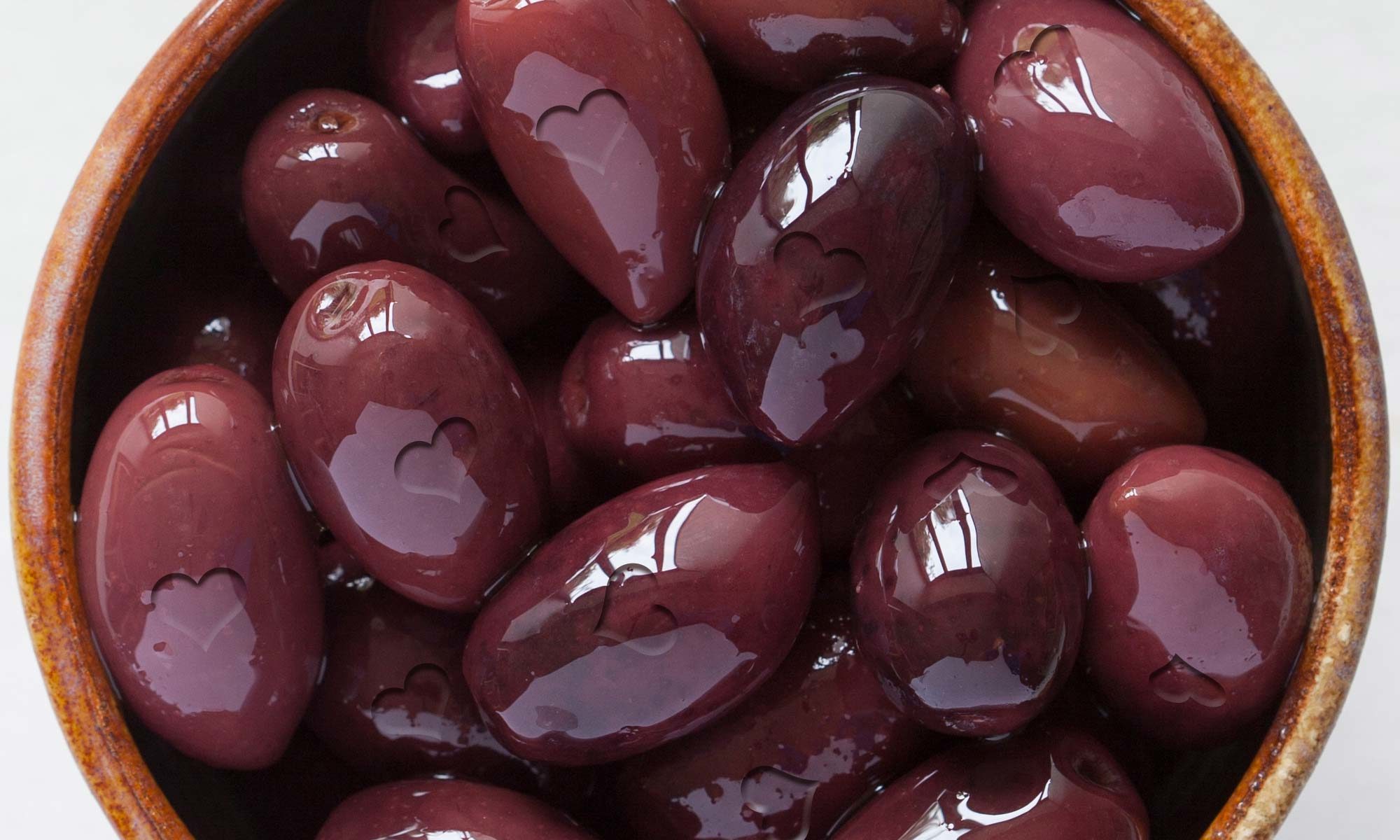We’ve come a long way since the days of Ancient Rome, when men celebrated the 13th to the 15th of February by getting drunk, slaying goats and dogs, and then using the animal hides to whip the women they lusted after. (The women, by the way, lined up for this punishment, believing it would make them more fertile).
Valentine’s Day is generally a bit more civilised these days. But there’s one thing the Romans did get right, in terms of getting lucky in love, and that was eating plenty of olives. In the Mediterranean, olives and their oil have always been considered an aphrodisiac; an old Greek custom is to give newlyweds bread dipped in olive oil to encourage conception.
The latest research supports the idea that olives are good for sexual health and libido. So forget about chocolates and roses – what about a pot of olives for the object of your desire this Valentine’s Day?
Olives and olive oil get the blood flowing
The oleic acid and monounsaturated fats in olive oil are credited with getting our circulation working well. This maintains the good health of – appropriately – our hearts, as well as keeping the blood flowing freely around all parts of the body.
One study of 20,000 people showed that the Mediterranean Diet – with particular emphasis on vegetables, fruit and olive oil – is linked with lower blood pressure. Another showed that the diet, especially when enriched with olive oil, helps protect blood vessel health by raising levels of ‘good’ HDL cholesterol. The benefits seem to happen whether the oil is extra-virgin or not – in one study, two groups of thirty-five volunteers were given two spoonfuls daily of either uncooked extra-virgin olive oil or uncooked ordinary olive oil. After three weeks, measures of coronary artery health were shown to be significantly improved in both groups.1,2,3
Uncooked extra-virgin olive oil is best
Cardiologist Dr Robert Vogel showed in a study in 2000 that many fats, including olive oil, can inhibit nitric oxide in the blood vessel lining; this finding has led to some anti-olive oil headlines since nitric oxide relaxes the vessels. However, the picture may be more complex than that. The answer may lie in a 2014 study which showed that, whilst certain fatty acids in olive oil may reduce nitric oxide benefits in blood vessel walls, the polyphenols in extra-virgin olive oil can negate this effect. It is also the case that HDL cholesterol enhances the release of nitric oxide. Remember, when using olive oil, that the oil must be uncooked in order for you to gain its benefits, and that extra-virgin olive oil is likely to be best as it is higher in polyphenols. It is also richer in vitamin E which helps prevent blood from clotting.4
Olives are your hormones’ friends
One hormone you don’t want too much of floating around your blood vessels if you’re trying to enjoy a romantic evening is the stress hormone, cortisol. On the other hand, a good supply of testosterone can come in handy. How fortunate, then, that olive oil delivers a double whammy where this is concerned, since it can reduce the former and increase the latter. And another study has shown that the Mediterranean Diet improves erectile dysfunction in men with metabolic syndrome, thanks to its good effects on insulin, the hormone which regulates blood sugar. 5,6
By writer and nutritionist Sally Beare
References
- Psaltopoulou, Theodora (2004). Olive oil, the Mediterranean diet, and arterial blood pressure: the Greek European Prospective Investigation into Cancer and Nutrition (EPIC) study1,2,3 Am Jnl Clin Nutr 80 (4) 1012-1018.
- Álvaro Hernáez (2017). Mediterranean Diet Improves High-Density Lipoprotein Function in High-Cardiovascular-Risk Individuals: A Randomized Controlled Trial. Circulation (135) 633-643.
- Silva, Sandra et al (2014). Impact of a 6-wk olive oil supplementation in healthy adults on urinary proteomic biomarkers of coronary artery disease, chronic kidney disease, and diabetes (types 1 and 2): a randomized, parallel, controlled, double-blind study1,2,3,4 American Journal of Clinical Nutrition.
- Storniolo, Carolina Emilia (2014). Polyphenol fraction of extra virgin olive oil protects against endothelial dysfunction induced by high glucose and free fatty acids through modulation of nitric oxide and endothelin-1. Redox Biol. 2014; 2: 971–977.
- Oi-Kano Y (2013). Oleuropein supplementation increases urinary noradrenaline and testicular testosterone levels and decreases plasma corticosterone level in rats fed high-protein diet. J Nutr Biochem (5):887-93
- Esposito, K et al (2006). Mediterranean diet improves erectile function in subjects with the metabolic syndrome. International Journal of Impotence Research (18) 405-410.

